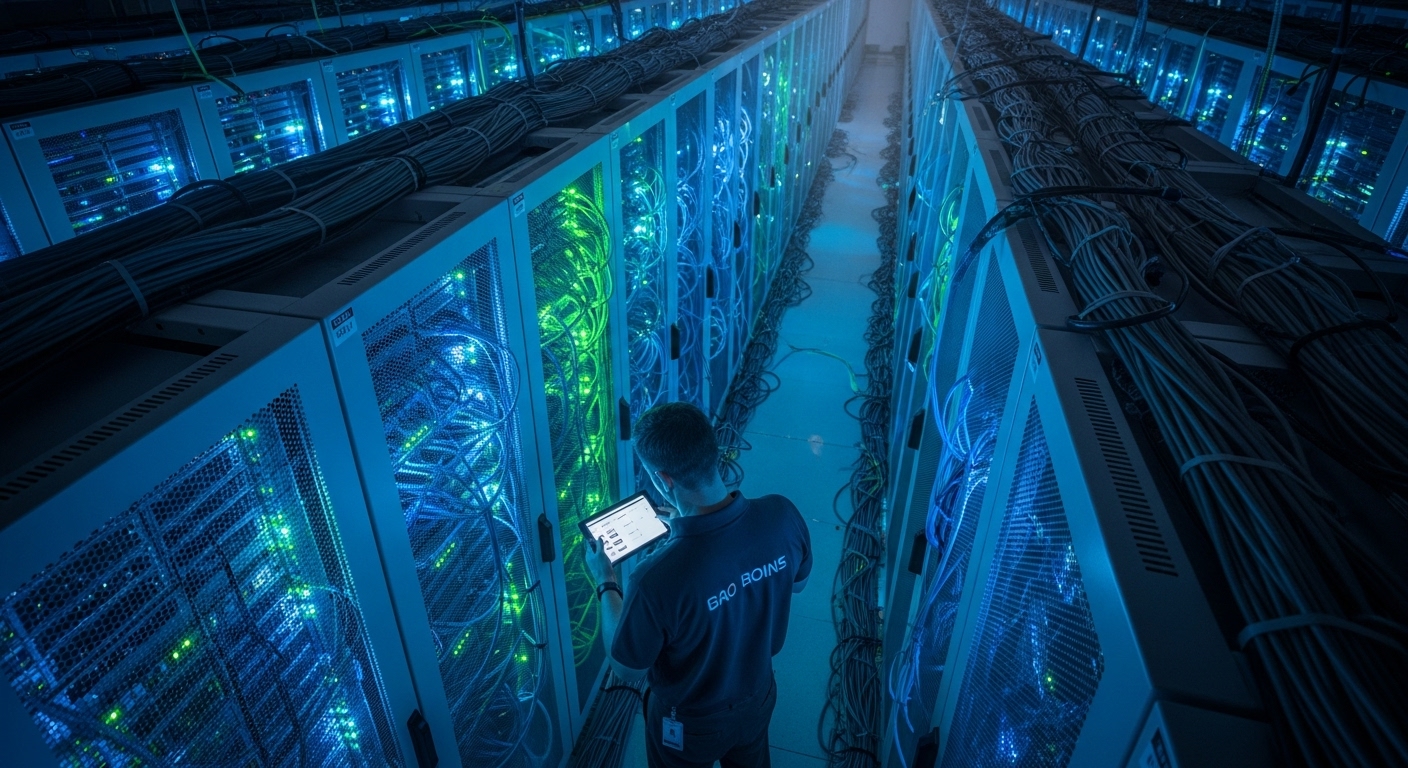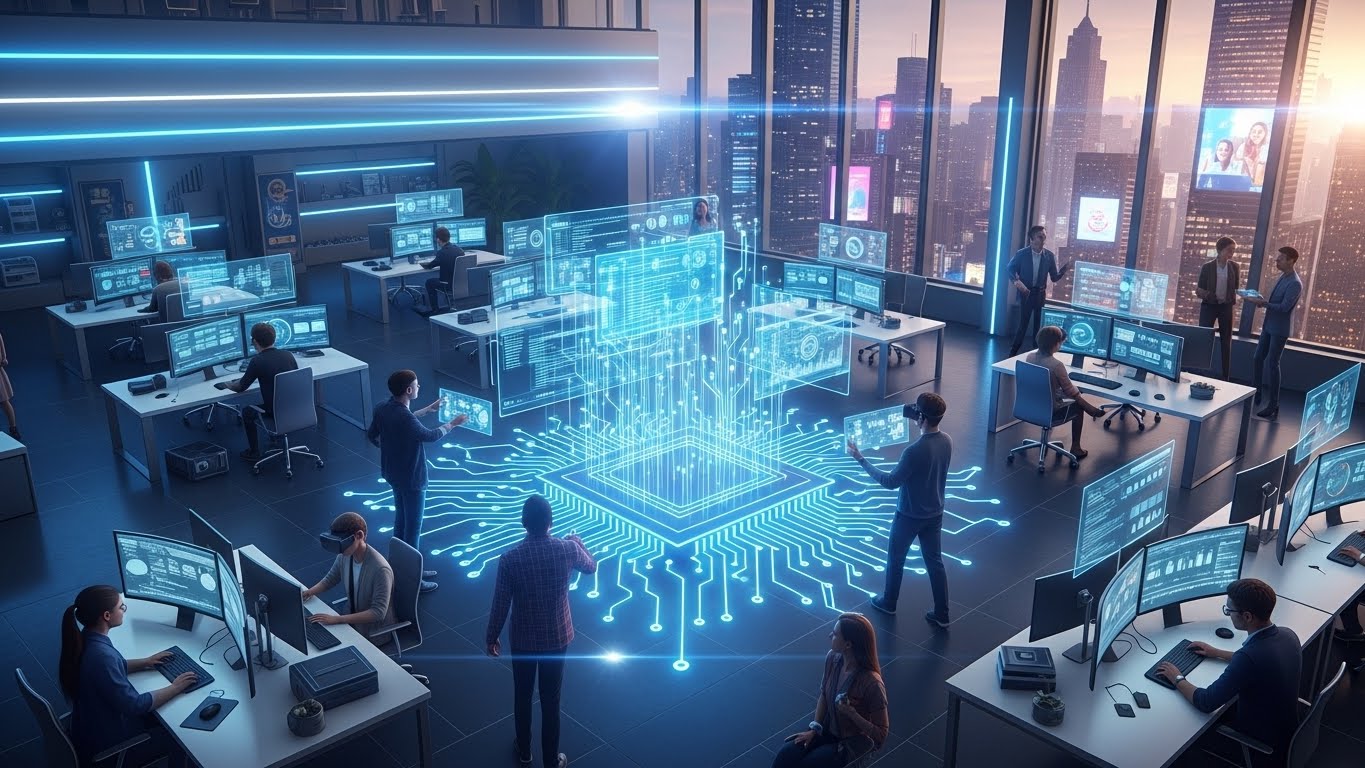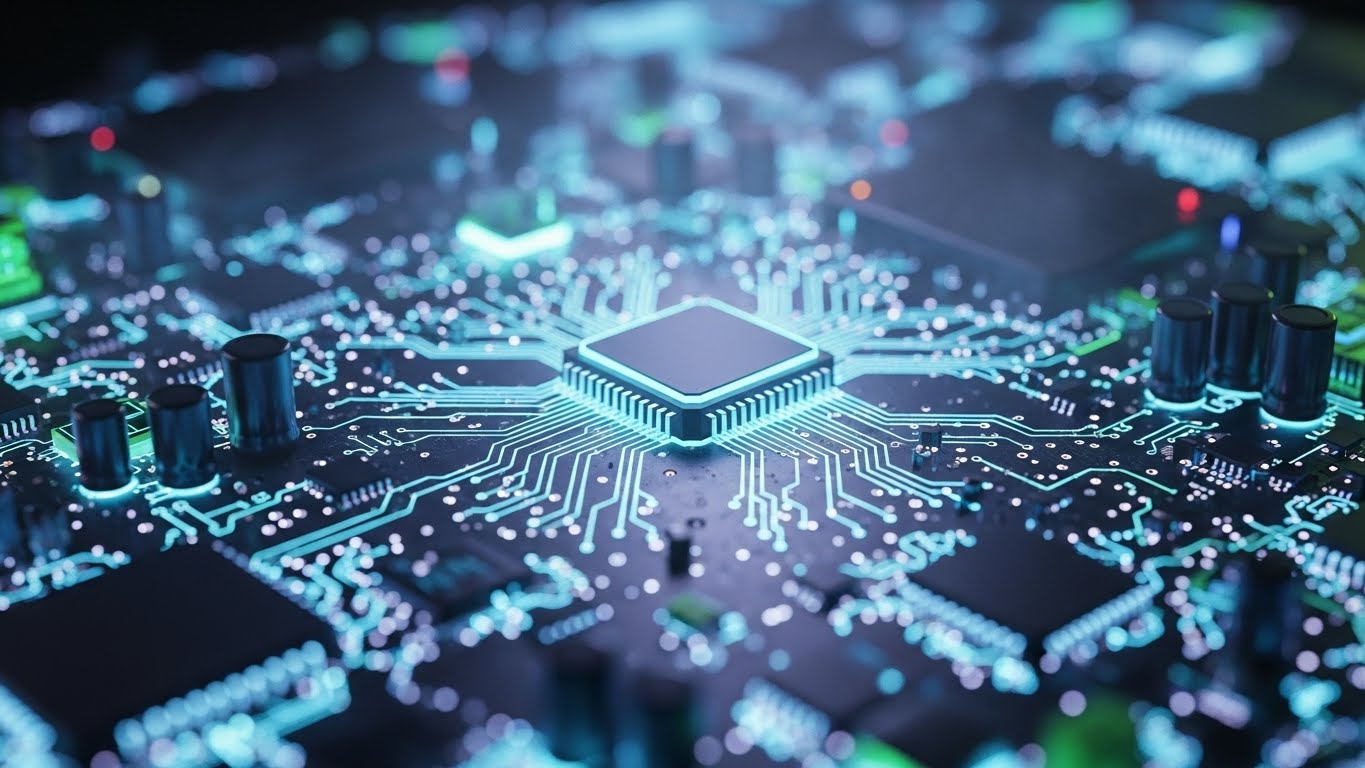Introduction
Technology has become an inseparable part of our daily lives, driving transformation across industries, societies, and individual lifestyles. From the devices in our pockets to the infrastructure powering entire cities, technology shapes how we communicate, work, and experience the world. The rapid pace of innovation in fields such as artificial intelligence, robotics, quantum computing, biotechnology, and renewable energy is creating unprecedented opportunities and challenges.
This blog explores the current landscape of technological innovation, the most impactful trends shaping our present and future, and how emerging technologies are influencing every aspect of human life. With proper headings, we will dive deep into each sector, highlighting both the promise and the potential risks of these developments.
Artificial Intelligence: Revolutionizing Industries
Artificial intelligence, or AI, is one of the most transformative technologies of the modern era. It encompasses machine learning, natural language processing, computer vision, and robotics, enabling machines to learn, reason, and perform tasks that previously required human intelligence. AI is now integrated into healthcare, finance, manufacturing, transportation, and entertainment.
In healthcare, AI algorithms analyze vast amounts of medical data to identify patterns, predict disease progression, and assist in diagnosis. In finance, AI systems detect fraud, optimize trading strategies, and provide personalized banking solutions. Manufacturing processes have become more efficient through AI-powered predictive maintenance and automation, reducing downtime and costs. AI-driven innovations in transportation, such as autonomous vehicles and smart traffic systems, promise safer and more efficient travel in the near future.
Despite its immense potential, AI also raises ethical concerns. Issues such as bias in algorithms, job displacement, and privacy violations require careful regulation and oversight to ensure that AI technologies benefit society as a whole.
Quantum Computing: The Next Frontier
Quantum computing represents a fundamental shift in computational capability. Unlike classical computers, which process information using binary bits, quantum computers use qubits that can exist in multiple states simultaneously. This property, known as superposition, allows quantum machines to perform complex calculations exponentially faster than traditional computers.
Quantum computing has the potential to revolutionize fields such as cryptography, materials science, drug discovery, and climate modeling. For instance, quantum algorithms could break existing encryption methods, prompting a new era of quantum-resistant cybersecurity. In pharmaceuticals, quantum simulations can accelerate the development of new drugs by analyzing molecular interactions at unprecedented speeds. Climate scientists can use quantum models to predict environmental changes more accurately, helping policymakers design effective mitigation strategies.
While the technology is still in its early stages, companies and governments worldwide are investing heavily in quantum research. The coming decade may see practical applications of quantum computing transforming industries and global economies.
5G and the Connectivity Revolution
The rollout of 5G networks is reshaping connectivity, enabling faster data transmission, lower latency, and greater device density. This technology underpins innovations in smart cities, autonomous vehicles, telemedicine, and the Internet of Things (IoT). With 5G, devices can communicate in real time, creating opportunities for automation, enhanced safety, and improved user experiences.
Smart cities utilize 5G to optimize energy consumption, manage traffic flows, and provide responsive public services. Autonomous vehicles rely on ultra-fast, low-latency networks to communicate with each other and with infrastructure, reducing accidents and traffic congestion. In healthcare, remote surgeries and real-time monitoring become feasible, expanding access to medical expertise in remote regions.
The widespread adoption of 5G also supports the growth of augmented reality (AR) and virtual reality (VR) experiences, transforming entertainment, education, and professional training. As connectivity continues to improve, the line between physical and digital realities will increasingly blur.
Renewable Energy and Sustainable Technology
As climate change becomes an urgent global challenge, technology is playing a critical role in transitioning to sustainable energy sources. Innovations in solar, wind, hydro, and battery storage are making renewable energy more efficient and affordable. Smart grids and energy management systems optimize electricity distribution, reducing waste and ensuring reliability.
Solar panels are becoming more efficient and cost-effective, enabling residential and commercial adoption on a large scale. Wind turbines benefit from advanced materials and predictive maintenance powered by AI, increasing energy output and reducing operational costs. Energy storage solutions, including lithium-ion and solid-state batteries, allow renewable energy to be stored and used during periods of low generation, addressing the intermittency problem.
Sustainable technology also extends to electric vehicles, green building materials, and carbon capture solutions. These innovations collectively contribute to a more sustainable and resilient global infrastructure, offering hope for a future less dependent on fossil fuels.
Artificial Intelligence in Everyday Life
AI is not confined to industrial applications; it is increasingly embedded in our daily lives. Virtual assistants like AI-powered voice recognition systems manage schedules, answer queries, and control smart home devices. Recommendation engines on streaming platforms and e-commerce websites analyze user behavior to deliver personalized experiences, while chatbots provide customer service around the clock.
Smart homes utilize AI to optimize energy consumption, security, and convenience. Thermostats, lighting systems, and appliances learn from user habits to reduce energy waste and enhance comfort. AI also supports personal health monitoring through wearable devices, tracking vital signs, sleep patterns, and activity levels, promoting preventive care and well-being.
These advancements improve convenience, productivity, and quality of life, but they also raise concerns about data privacy, security, and the ethical use of personal information.
Robotics and Automation
Robotics is transforming manufacturing, healthcare, logistics, and even household tasks. Industrial robots perform precise, repetitive tasks with efficiency and consistency, reducing errors and operational costs. In healthcare, surgical robots assist in complex procedures, improving accuracy and patient outcomes.
Autonomous drones are deployed for delivery, surveillance, and environmental monitoring. Service robots provide assistance in hospitality, retail, and elder care, addressing labor shortages and improving efficiency. The integration of AI with robotics is enabling machines to perform increasingly sophisticated tasks, including decision-making, navigation, and human interaction.
While automation offers economic and operational benefits, it also poses social challenges. Job displacement, skill gaps, and ethical concerns about human-robot interaction require proactive policies and workforce adaptation.
Blockchain and Decentralized Technologies
Blockchain technology, the backbone of cryptocurrencies, has applications far beyond digital currencies. Its decentralized and immutable nature ensures transparency, security, and trust in digital transactions. Blockchain is transforming finance, supply chains, healthcare, and governance.
In finance, blockchain enables secure, instant cross-border transactions without intermediaries. Supply chain management benefits from transparent tracking of goods, ensuring authenticity and reducing fraud. Healthcare records can be securely stored and shared, enhancing patient privacy and accessibility. Decentralized platforms also empower content creators, enabling direct monetization without relying on traditional intermediaries.
Smart contracts—self-executing agreements recorded on a blockchain—automate transactions and enforce terms without human intervention. This innovation reduces administrative costs, increases efficiency, and ensures compliance across industries.
Virtual Reality, Augmented Reality, and Immersive Experiences
Virtual reality (VR) and augmented reality (AR) are transforming entertainment, education, and professional training. VR immerses users in a fully digital environment, creating interactive experiences for gaming, simulations, and virtual travel. AR overlays digital information onto the real world, enhancing navigation, education, and design processes.
In education, VR enables immersive learning experiences, allowing students to explore historical sites, conduct virtual science experiments, and practice complex procedures in a safe environment. AR is used in architecture and engineering for visualizing projects in real-world contexts, reducing errors and improving design accuracy. In entertainment, VR and AR create new forms of interactive storytelling, engaging audiences in ways traditional media cannot.
The integration of these technologies with AI and 5G will further enhance realism, responsiveness, and accessibility, bringing immersive digital experiences to mainstream audiences.
Biotechnology and Medical Innovations
Technological advancements in biotechnology are revolutionizing healthcare and medicine. Gene editing techniques like CRISPR allow scientists to modify DNA with unprecedented precision, opening possibilities for treating genetic disorders and improving crop resilience. Personalized medicine, powered by genomic data and AI analysis, tailors treatments to individual patients for better outcomes.
Medical devices and wearables monitor vital signs, detect anomalies, and predict health risks. Telemedicine platforms leverage AI to provide remote consultations, diagnostics, and patient monitoring, improving access to care in underserved regions. Robotics-assisted surgeries and AI-driven diagnostics enhance precision, reduce recovery times, and improve patient safety.
Biotechnology also intersects with environmental sustainability, with innovations such as biofuels, synthetic biology, and microbial engineering offering solutions to energy and pollution challenges.
The Internet of Things (IoT)
The Internet of Things connects devices, sensors, and systems, enabling real-time data collection and automation. Smart homes, smart cities, and industrial IoT applications optimize efficiency, safety, and convenience. IoT devices monitor energy usage, manage traffic, and provide predictive maintenance in factories, reducing costs and environmental impact.
Healthcare benefits from IoT through remote monitoring of patients, wearable health trackers, and connected medical devices. Agriculture uses IoT for precision farming, improving yields and reducing resource consumption. The interconnected nature of IoT enhances decision-making, resource management, and overall quality of life.
However, widespread connectivity also raises concerns about cybersecurity, privacy, and data governance. Ensuring secure and ethical use of IoT systems is critical to realizing their full potential.
Challenges and Ethical Considerations in Technology
While technology offers immense benefits, it also presents significant challenges. Data privacy, cybersecurity, and digital rights are pressing concerns as personal and organizational information becomes increasingly digitized. AI bias, algorithmic decision-making, and automation raise ethical questions about fairness, accountability, and social equity.
The environmental impact of technology, including energy consumption, electronic waste, and resource extraction, requires sustainable practices and green innovation. Regulatory frameworks must keep pace with technological advancement to balance innovation with societal responsibility. Education, awareness, and ethical design are crucial to ensuring that technology benefits all segments of society.
The Future of Technology
The future of technology promises continued transformation across all aspects of life. Artificial intelligence will become more sophisticated, quantum computing may solve problems previously deemed impossible, and immersive digital experiences will reshape entertainment, education, and communication. Renewable energy, biotechnology, and IoT will contribute to sustainability and improved quality of life.
Emerging technologies will drive economic growth, create new industries, and redefine human potential. Collaboration between governments, businesses, and individuals will be essential to ensure equitable access, ethical implementation, and responsible innovation. The digital world of tomorrow will be more interconnected, intelligent, and immersive than ever before, offering opportunities and challenges that will shape the course of human civilization.
Conclusion
Technology is no longer a background feature of life; it is the foundation of modern society. From artificial intelligence to quantum computing, from renewable energy to biotechnology, technological innovation touches every aspect of our existence. It drives economic growth, improves quality of life, and opens new frontiers for human creativity and discovery.
As we continue to push the boundaries of what is possible, it is crucial to navigate ethical, social, and environmental considerations responsibly. The future of technology holds immense promise, and understanding its potential allows us to harness it for the greater good. By embracing innovation while addressing challenges, humanity can build a world that is smarter, safer, and more sustainable for generations to come.




